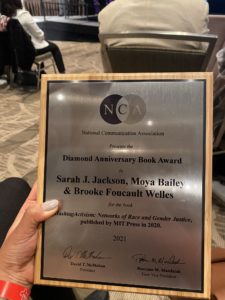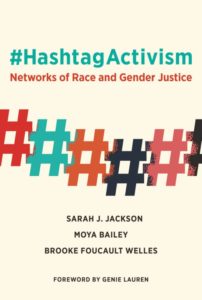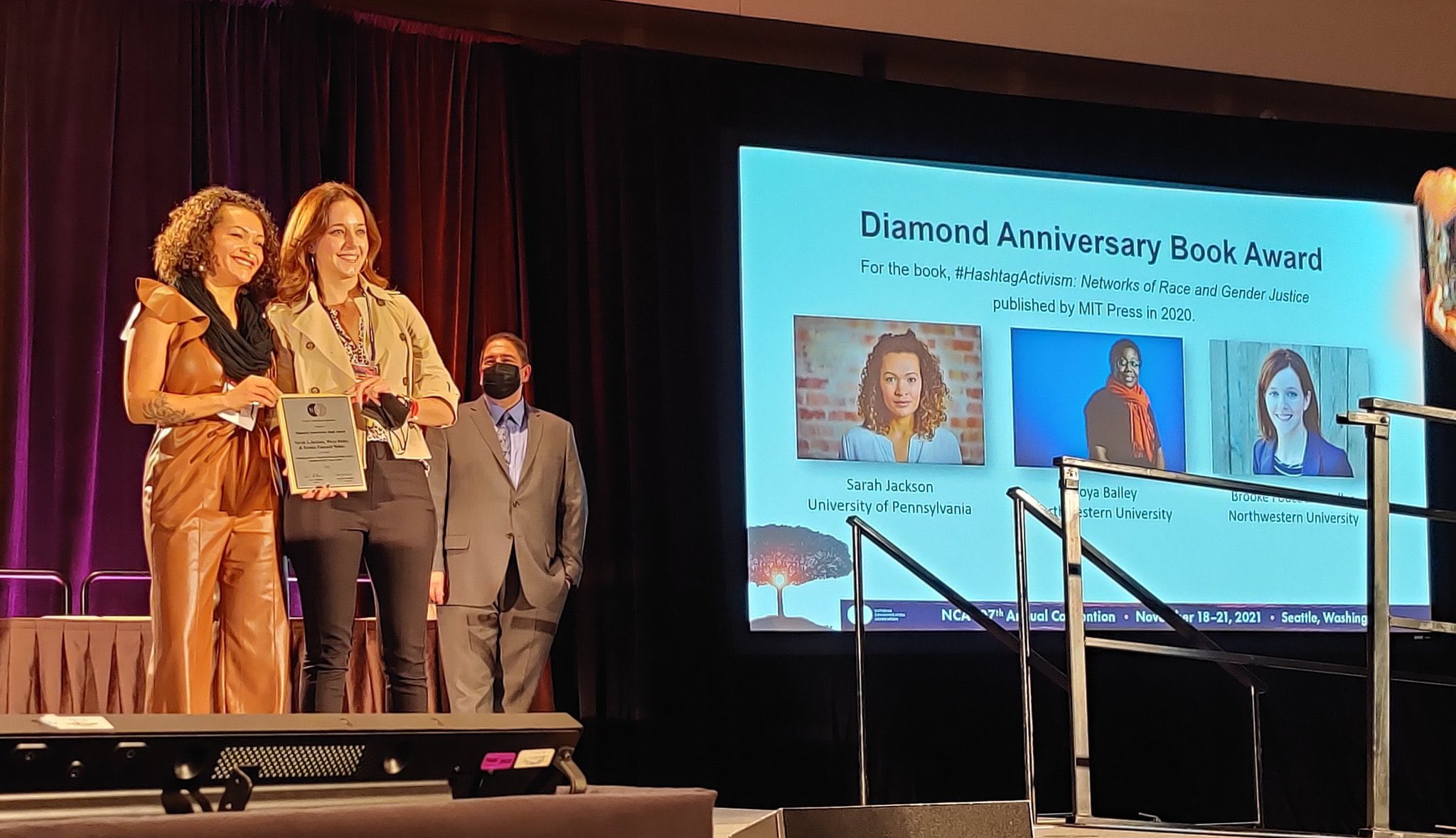Social media has given rise to a new kind of social movement, from #BlackLivesMatter, to #MeToo, #ClimateAction, and #GivingTuesdayNOW.
“Hashtag activism” is explored in a new book from Communication Studies Interim Department Chair and Associate Professor Brooke Foucault Welles and co-authors Sarah J. Jackson and Moya Bailey: #HashtagActivism: Networks of Race and Gender Justice. The book was recently awarded the 2021 National Communication Association (NCA) Diamond Anniversary Book Award.

The Diamond Anniversary Book Award is given to the most outstanding scholarly books in the field of communication. According to the NCA, this book “has the potential to benefit courses and learners in technological communication, journalism, social media, performance studies, interpersonal communication, and beyond. The authors have provided an insightful guidebook for activism, solidarity, and allyship.”
The trio initially took notice of the hashtag activism trend when all three were colleagues at Northeastern University in 2012. Noticing an uptick in activism on social media platforms, particularly following the shooting death of Trayvon Martin, they were fascinated by how marginalized groups advance counter-narratives, preempt political spin, and build diverse networks of dissent.
“People were calling it ‘slactivism,’ but that didn’t sit entirely well with us,” Foucault Welles explained. “At that point it wasn’t an intellectual endeavor, just an idea. As folks who participated in activism, what was happening online seemed to be more consequential than people were saying. Online activism was not only reshaping public narratives, but also helping activists find and support one another. What was happening in these online spaces was important.”
When in 2014 the hashtag #myNYPD trended on Twitter and people began using it to speak up about police violence Foucault Welles, Jackson, and Bailey began to dig deeper. Combining the methods of computational social science and network science with the theories of media, race and gender, the three started to investigate these activists and their communal online spaces. That research eventually led to the March 2020 publication of #HashtagActivism. In the book, the authors examine the rise of internet activism through movements such as #JusticeForTrayvon, #SayHerName, and #GirlsLikeUs and the resulting implications on culture, society, and justice. #HashtagActivism presents a theory of information justice that takes up the issue of control and relates it to issues that influence social outcomes.

The value of collaborative writing was a hugely rewarding and enriching experience for the three authors as they learned from one another, complimented each other’s strengths, and motivated one another. “#HashtagActivism is an example of the kind of interdisciplinary cross-platform work that we want to be doing in CAMD. We wouldn’t have been able to do the multiscalar work and analysis that includes huge networks and deep dives into individual messages without cutting across disciplines. We needed critical humanities, media, social science, and computational scholars in order to bring all those pieces together,” Foucault Welles reflects.
One takeaway Foucault Welles hopes readers will remember from this book is that it represents a critical “documentation of this moment in history. I hope that in some future we will look back on this period of time as one of cultural transformation that let us grapple with issues like sexual assault, transphobia, and racism in ways that are meaningful. I hope these things get fixed and we can point back to this time as an important moment in history, and #HashtagActivism helps describe how we created that transformation,” she added.
“I hope people will also take away some inspiration that all of these conversations online are working, change is slow and not linear, but it is happening,” said Foucault Welles. “When I sign the book, I always write to my readers to ‘keep tweeting.’ Engaging in these online conversations matters a great deal and can be transformative.”
Order your copy of #HashtagActivism Networks of Race and Gender Justice on the MIT Press website.


